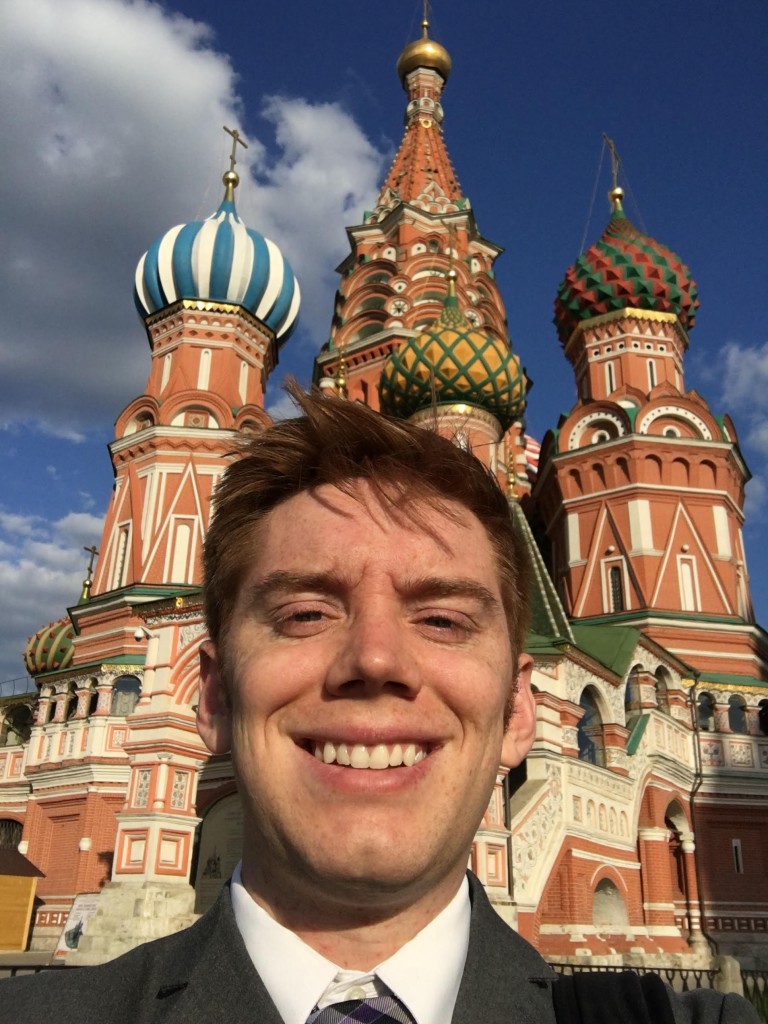ICLRS Student Fellow Joshua Prince, Externship in Moscow, Russia

“Religious freedom and freedom of belief have been aptly described as our first freedoms. The ability to think and worship freely are what make us human,” explains Joshua Prince, a 2016 Student Fellow for the International Center for Law and Religion Studies. “When people are not free to live according to their religion or even their moral compass, that sense of humanity is lost.”
Prince’s interest in religious freedom was kindled while serving in the Donetsk Ukraine LDS mission. “I became particularly troubled by the hoops that we had to jump through just to be able to practice our religion,” he said. Upon returning home in 2011, Prince began to research the extent of Ukraine’s religious freedom, and found that it was considered relatively free compared to many countries of the world. “I began to realize just how important religious freedom is and how much I have personally taken it for granted,” he said.
The same year he returned from his mission, Prince volunteered to help Russian delegates at the Annual Symposium hosted by the International Center for Law and Religion Studies. Attending the event flamed his already growing interest in religious freedom, and he decided then he wanted to be a lawyer. In 2015, he enrolled in BYU Law School, having chosen it in large part because of its international presence and the International Center for Law and Religion Studies.
After completing his first year of law school, Prince realized his dream to promote religious freedom while working as a summer fellow for the International Center for Law and Religion Studies. He joined practicing attorneys at the LDS Office of General Counsel for the European East Area in Moscow, Russia, where he researched laws affecting religious freedom in Russia and Eastern Europe.
Some of his research included analyzing the anti-terrorism law passed in Russia on July 6, 2016, that put strict limitations on proselytizing and other faith-sharing activities. This new law requires careful legal analysis to help the LDS Church modify how its LDS missionaries share their faith. Prince explained that the new law and its restrictions are upsetting to members of many religious denominations in Russia. “Several provisions in the new law provide reasons to be concerned, particularly an amendment to the Housing Code of the Russian Federation that makes missionary activity in residential areas illegal,” he said.
Through his research and his time spent in the Office of General Counsel, Prince enjoyed the opportunity to use and develop his legal skills while he saw those skills modeled by attorneys in the office. “I worked daily with incredibly skilled attorneys who offered me constructive feedback and really made me feel as though my contribution mattered,” he said. “I was able to use the research and writing skills that I learned in my first year at BYU Law on a daily basis as I offered solutions to challenges.“
While he isn’t sure yet what he hopes to do for a legal career, Prince is grateful for the opportunity to promote religious freedom. “There are few places in the world where it is threatened more than Eastern Europe,” he said. “I knew I was making a meaningful difference in the lives of real people.”